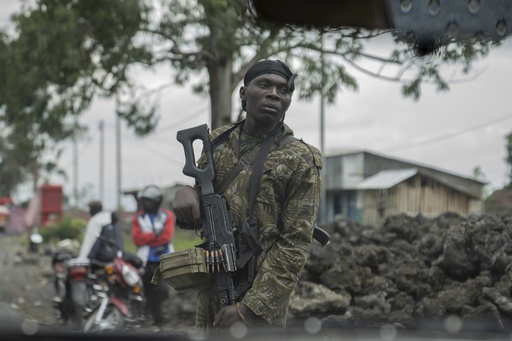
HARARE, Zimbabwe — Leaders from Southern Africa convened on Wednesday to decide on extending the deployment of regional forces for another year to combat insurgents in the war-afflicted eastern Democratic Republic of Congo. They also expressed their commitment to pursuing peace in Mozambique, a nation currently unsettled by contested election results.
The extraordinary summit took place in the capital city, Harare, under the auspices of the Southern African Development Community (SADC), a regional organization encompassing 16 member states, including the Democratic Republic of Congo.
During the meeting, South Africa, as a leading regional player, pledged nearly 3,000 troops for the ongoing SADC operation in the Democratic Republic of Congo, which commenced last December. Additionally, over 2,000 personnel from Tanzania and Malawi joined the mission, highlighting regional solidarity in addressing the complexities posed by armed conflicts in the region.
This mission is part of a broader coalition of forces active in the resource-rich area, which has been experiencing decades of violence. The security landscape consists not only of Congolese government soldiers but also foreign mercenaries, a United Nations peacekeeping contingent, and numerous armed groups vying for power and access to land and mineral wealth. Some of these groups aim to protect their communities, while others face allegations of committing mass killings and acts of ethnic cleansing.
Rwanda has disputed accusations from the Congolese authorities and U.N. experts, asserting that it provides support to M23, the principal rebel faction in eastern Congo, now grappling with one of the largest humanitarian crises globally, displacing over 7 million individuals.
Although the U.N. had planned to withdraw its peacekeepers from Congo next month, escalating violence in the eastern regions attributed to Rwandan-backed rebels has delayed this decision. Patrick Muyaya, Congo’s communication minister, indicated there would be an adjustment to the timeline for the peacekeeping force’s exit, although specific details were not disclosed.
In relation to Mozambique, the SADC leaders reaffirmed their strong commitment to achieving a peaceful resolution to a contentious electoral dispute that has ignited weeks of protests and claimed at least 30 lives. Mozambique’s electoral body recently proclaimed that the ruling Frelimo party secured victory in the general election held on October 9, which has been under Frelimo’s governance since the country gained independence from Portugal in 1975.
Venancio Mondlane, an independent candidate who came in second with 20% of the votes, has legally contested the results and called for nationwide demonstrations. The case is currently awaiting the highest court’s decision regarding the opposition’s challenge.
In the meantime, the Attorney General’s Office has filed a lawsuit against Mondlane and the party supporting him, the Optimistic People for the Development of Mozambique (Podemos), seeking damages for losses incurred during the protests. Outgoing President Filipe Nyusi has expressed a willingness to engage in discussions with presidential contenders to alleviate the political strife, while Mondlane has taken refuge in an undisclosed location, citing concerns over a supposed assassination plot directed at him.
